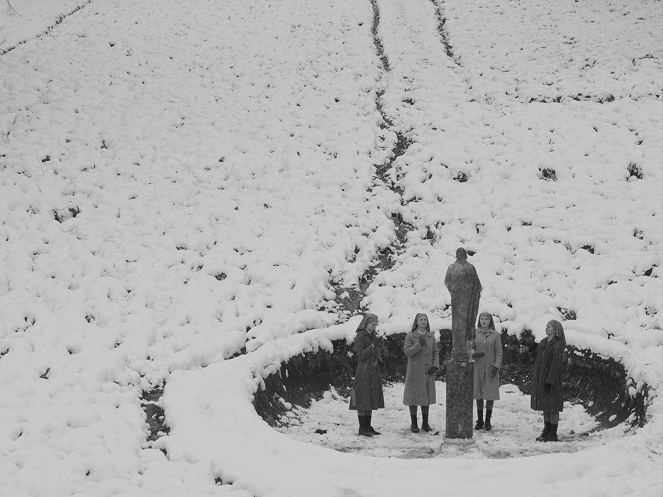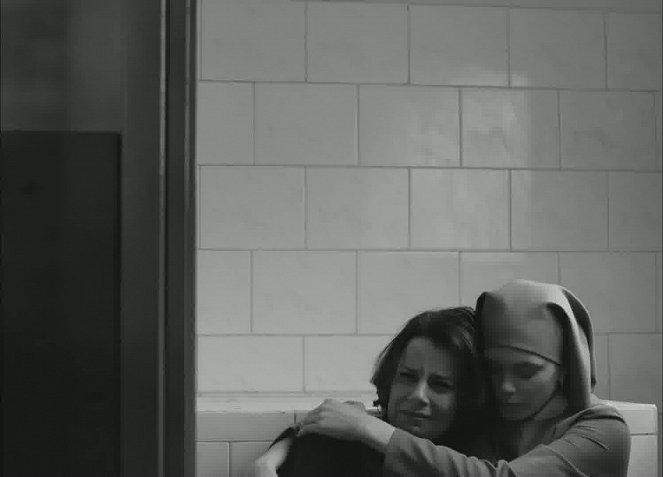Directed by:
Paweł PawlikowskiComposer:
Kristian Eidnes AndersenCast:
Agata Kulesza, Agata Trzebuchowska, Dawid Ogrodnik, Jerzy Trela, Adam Szyszkowski, Halina Skoczynska, Joanna Kulig, Mariusz Jakus, Izabela Dąbrowska (more)VOD (1)
Plots(1)
Poland 1962. Anna is a beautiful eighteen year old woman, preparing to become a nun at the convent where she has lived since orphaned as a child. She learns she has a living relative she must visit before taking her vows, her mother's sister Wanda. Together, the two women embark on a voyage of discovery of each other and their past. Her aunt, she learns is not only a former hardline Communist state prosecutor notorious for sentencing priests and others to death, but also a Jew. Anna learns that she too is Jewish - and that her real name is Ida. This revelation sets Anna, now Ida, on a journey to uncover her roots and confront the truth about her family. Ida has to choose between her birth identity and the religion that saved her from the massacres of the Nazi occupation of Poland. And Wanda must confront decisions she made during the War when she chose loyalty to the cause before family. (Curious Films)
(more)Videos (3)
Reviews (7)
When it comes to form, Ida represents heavyweight art that leaves no doubt from the beginning that it was created with the intention of winning an award at a prestigious festival. I approach such projects with preliminary caution, as similar films often suffer from mannerisms and creative self-centeredness. For example, I do not understand why it was necessary to cast a non-actress in the lead role. Was it really impossible to find an inexperienced student with deep expressive eyes in numerous Polish art schools and regional theaters who would also be capable of acting? Actually, it makes sense. In this kind of film, acting is an unforgivable sin. You can only "be" and "throw long glances." The image is static, the script simple, and the story is mostly predictable. However, the essence of the experience is the suggestive black and white camera, which captures the inhospitable environment of 1950s Poland, mutilated human fates, and tragic characters going through a deep internal crisis. Ida's final decision is not an expression of her deep religious faith, but rather a sign of low self-confidence in whether she would withstand the unfriendly world where she would not find the necessary emotional and material support. To stay alone with oneself in a foreign environment is simply unbearable. An even more interesting character is the embittered Aunt Wanda, who embodies the demons of recent history, ideological fanaticism, and subsequent disillusionment, as well as memories of the cruelty in the consolidation of the new regime. Unfortunately, Pawlikowski only brings up these themes without developing them, and the viewer has to rely on their imagination. Considering its content, Ida has an ideal runtime, and if it were 20 minutes longer, I would have stayed at 3 stars. And if Pawlikowski had let himself be carried away by creative enthusiasm (which often happens to these gentlemen) and extended the runtime to 120 minutes, I would have mercilessly gone even lower. In this form, however, I even think that Ida is an ideal candidate for exploring new cinematic territory. If you want to try a new genre, in this case, a minimalist psychological drama, Ida is a good testing ground that will tell you whether you should dare to go further. I don't consider winning an Oscar to be adequate, unlike a film like Son of Saul, Ida does not reach the formal and content qualities, but 4 stars indicate that it still has its claws in me. Overall impression: 75%.
()
Big topic are "seeming randomly" addressed in an intimate and subtle way (these big topics overlap not only through character of Wanda with what we shall address in the Czech republic) with an unprecedentedly refined, coldly reserved visual side. And this visual side is surprisingly the biggest stumbling block, because each shot is so magnificently composed that the image steals the show. And it's never good. In other words, surprisingly, despite the rich and high-quality content, "the form overshadows the content" to a larger extent.
()
Most of the time, this doesn't happen, but with this film, I was more drawn to the visual aspect than the plot. Usually it's the story that gets me, but this black-and-white cinematography was so beautiful I just stared. Unfortunately, the story, while not bad, didn't captivate me as much, and the story of the nun just before taking her vows is somewhat predictable at times.
()
The promotional advantage of a European art film starring a sexy nun in the main role is definitely always the hope that in the context of provocatively challenging old world mores, we're pretty likely to receive her full frontal. Ida, however, has other aces up its sleeve, notably the bravura composition of practically all the shots, which are often unpleasantly uninformative (for example, several times we don't see the person being spoken to or about, even though they're a meter and a half away from the camera frame) and designed so that their actors fill only a minimal part of the frame. This way of shooting, along with the black and white color scheme, helps to portray communist Poland as the elusive scarred little brother of Mordor, riddled with existentialism, loneliness, and alienation. Despite this, Ida is not heavy art, as it easily could have been, since each of the scenes in the film has a clearly named purpose, and the protagonists' impenetrability is framed by the specific goal they are both pursuing. Everything beyond that is something the viewer can comfortably find for themselves, and the film doesn't push them to do so.
()
A black-and-white film with a 4:3 aspect ratio that is a tribute to the cinematography of the 1960s (during which the plot of the film takes place), and the return of director Pawlikowski to Polish films. The story of a young novice (the phase before becoming a nun) who goes on an intimate road trip to see her aunt to discover the grave of her parents (during which she finds out who she is), is not very attractive and is quite predictable. On the other hand, the artistic side of the film is worth it. Ida is a modest and pure film that emphasizes the psychology of the characters and the aesthetics of the image. It is interesting upon the first viewing, but there is no reason to see it again.
()
Gallery (89)
Photo © Soloban



Ads